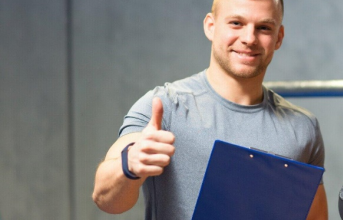Dentistry Work Experience in London: Top Clinics and University Programmes

London is home to some of the world’s premier dental schools, including King’s College London Dental Institute, Queen Mary University of London, and UCL Eastman Dental Institute. These institutions attract students from across the globe, making work experience placements highly competitive.
Additionally, strict NHS and university regulations mean that hands-on opportunities—such as drilling or filling—are often reserved for advanced students. While shadowing dentists is usually accessible, gaining practical experience can be more challenging.
Common Challenges in London
-
High demand and limited spots: The city’s dental schools and clinics receive many applications, but placement availability is scarce.
-
Regulatory hurdles: Health and safety protocols, patient confidentiality, and insurance issues limit clinics’ ability to offer hands-on experience.
-
Cost of living: London’s high expenses may indirectly impact your capacity to commit to placements.
Clinics vs. University Programmes: What to Expect
Dental Clinics
Clinics offer invaluable exposure to real patients and day-to-day dental challenges. Shadowing experienced professionals helps develop practical skills like patient communication, managing anxiety, and handling unpredictable cases.
Pros:
-
Real-world patient interactions
-
Mentorship from practicing dentists
-
Networking with London’s dental community
-
Insight into clinical workflow and problem-solving
Cons:
-
You may spend significant time observing rather than doing
-
Busy clinics might limit teaching time
In London, prestigious private practices such as those on Harley Street can be difficult to access, but NHS community clinics offer broader patient demographics and may be more open to students. Hospitals like Guy’s and St Thomas’ NHS Foundation Trust have dental departments that sometimes accept student observers.
University Programmes and Placements
University-run placements are typically well-structured, involving rotations through departments and sometimes including research projects. These are especially beneficial if you aim for specialization, teaching, or academic careers.
Pros:
-
Clear learning objectives and supervision
-
Exposure to research and academic dentistry
-
Supportive environment for beginners
Cons:
-
More structured, possibly less hands-on
-
Less exposure to the unpredictability of clinical practice
Blending Both Worlds
The ideal approach often combines university placements with clinic shadowing. University programmes provide academic depth, while clinics offer practical insight. Both experiences contribute significantly to your growth and confidence.
Tips from Dental Professionals
-
Diversify your experience: Secure university placements for foundational learning and complement these with clinical shadowing whenever possible.
-
Network extensively: Connections made at seminars, conferences, or through alumni can lead to valuable placements.
-
Consider your long-term goals: If you’re drawn to academia or specialization, university placements are vital; if you want to build clinical grit quickly, clinics are the place to be.
Reflect Before Applying
Ask yourself:
-
What kind of dental professional do I want to be?
-
Do I thrive in fast-paced, unpredictable clinic environments or prefer structured academic learning?
-
Am I excited by solving everyday practical problems or exploring the science behind dentistry?
-
Do I want to impact communities directly or contribute to dental research?
Try shadowing both university and clinic settings to discover where you feel most engaged.
Networking: Your Key to Opportunities
Some of the best work experiences come from connections beyond official channels.
Tap into Alumni Networks
Reach out to dental school alumni on LinkedIn or university portals. Here’s a polite message example:
Hi Dr. Anjali Patel,
I’m an aspiring dentist at King’s College London and would be grateful for 15 minutes of advice on securing work experience in London.
Thank you!
Sample Email to Alumni or Dentists
Subject: Curious Dental Student Seeking Real-World Wisdom (and a Chance to Help!)
Dear Dr. Anjali Patel,
I hope this message finds you well. My name is Anwar Ali, and I’m a passionate dental student at King’s College London Dental Institute. I have been following your work at Guy’s and St Thomas’ NHS Foundation Trust, especially your research on minimally invasive restorative dentistry.
I would be incredibly grateful for an opportunity to shadow you or assist with any projects you think I could contribute to. I am eager to learn and respectful of your time.
Thank you for considering my request—I look forward to hearing from you.
Other London-Based Dental Professionals to Consider Contacting:
-
Dr. James Roberts — Consultant in Restorative Dentistry, UCL Eastman Dental Institute
-
Dr. Sarah O’Connor — Pediatric Dentist, Queen Mary University Dental Clinic
-
Dr. Michael Green — Oral Surgery Specialist, King’s College London Dental Institute
-
Dr. Emma Li — Orthodontist, Harley Street Dental Clinic
Engage with Dental Societies and Conferences
Volunteer or attend events by the British Dental Association or specialty groups. These settings provide access to key professionals and chances to make a memorable impression.
Join Specialty Interest Groups
Whether your passion is orthodontics, pediatric dentistry, or oral surgery, join student branches or attend lectures. Smaller groups often offer greater opportunities for personal connections.
Use Social Media Thoughtfully
Reach out to dentists whose work you admire, commenting or messaging to express genuine interest and ask for brief conversations or advice.
Keep a Curiosity Log and Follow Up
After every interaction or placement, note insights and questions. Referencing these in future communications shows sincere interest. Always send a thank-you note mentioning what you learned or appreciated. This simple gesture builds strong, lasting relationships.
Writing a Winning Application Email: Key Tips
-
Be personal and use the recipient’s name
-
Express honest enthusiasm and specific interest
-
Respect their time and keep your request clear and polite
-
Follow up professionally if you don’t hear back within a week or two
Final Thoughts
Securing dentistry work experience in London is competitive but achievable with curiosity, persistence, and strategic networking. Every experience, from shadowing to research, contributes to your development and brings you closer to your career goals.


